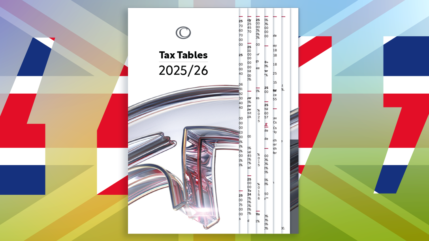Capital Gains Tax (CGT) is an important area of tax planning for Courtiers Advisers affording clients ways to minimise any tax charges on profits from the disposal of assets such as second homes, shares and personal possessions like antiques, art and jewellery. Selling a buy-to-let property, or giving away, swapping or transferring ownership of an asset can mean that CGT comes into play leading to significant tax bills.
Following changes made by Chancellor of the Exchequer Jeremy Hunt in the 2022 Autumn Statement, the need for tax planning around CGT has become even more important. The Chancellor halved the annual amount of realised gains that can be offset against a CGT liability from £12,300 in 2022-23 to £6,000 in this tax year. A reduced annual exemption equates to higher CGT bills. And from April 2024, the annual exemption is due to halved again to £3,000.
A combination of these changes and high inflation that has increased gains on the disposal of assets led the Office of Tax Simplification to estimate that as a result of cutting the annual exemption to £6,000, an extra 235,000 people would be required to report a capital gain. The Office for Budget Responsibility calculates that receipts from CGT will soar to £26.1 billion in the 2027-28 tax year from £18.1 billion in 2022-23. In short, more people will pay more tax.
Tax planning opportunities
Whenever the taxation landscape changes with potentially negative consequences for clients as it has with CGT, we regard this as a tax planning opportunity. This article identifies seven tax planning opportunities, which feed directly into financial planning strategies. All are in active use by clients, with the aim of ensuring they don’t pay any more in CGT than they need to.
The article does not constitute financial advice, rather it outlines broad strategies. If you think any might be appropriate to your circumstances and to helping you meet your financial goals and objectives, or you would like more detailed information about CGT rules and legislation, please speak to your Courtiers Adviser, or contact us.
Make use of tax-free wrappers
Gains made within an ISA are tax-free, so for many it can make sense to utilise the annual £20,000 ISA allowance. Similarly, gains from investments held in SIPPs are not subject to CGT. That said, CGT-tax efficiency is just one feature of ISAs and SIPPs and should be considered as part of an overall financial plan aimed at meeting personal financial objectives and goals.
Put more into a pension
Especially for anyone who’s a higher or additional rate taxpayer, it’s sometimes appropriate to put more into an existing pension. The amount of CGT charged is linked to a taxpayer’s rate of income tax, so doing this can result in lower income tax and a reduced CGT bill.
Bed and ISA
Where investments are held outside a tax-free wrapper, gains above the annual exempt amount are subject to CGT. Selling investments and buying them back within a CGT tax-free ISA wrapper, where future gains will be free of CGT (called ‘bed and ISA’) is one way, which through careful planning, Courtiers can help clients manage their CGT. A similar process called ‘Bed and SIPP’ is another way that we can help clients protect their wealth.
Take advantage of the current annual exemption
With the annual exemption due to be halved again to £3,000 in April 2024, it makes sense for some clients to take advantage of the current relatively generous £6,000 annual exemption by realising gains from the disposal of assets in the current tax year. Staggering the sale of chargeable assets, such as shares across a number of years to utilise two or more years’ allowances can also help clients to minimise any tax bill. It’s important to realise that any unused exemption cannot be carried forward to be used in another tax year. Either you use it, or you lose it.
Offset gains with losses
The disposal of assets that results in a capital loss can be turned to advantage by the effective use of tax rules, which allow losses to be offset against capital gains reducing CGT liability. These rules can allow losses, say on the sale of shares to be carried forward indefinitely and offset against future gains, for example, from selling a second home. Utilising these rules effectively can be complicated, especially timing when to incur and report a loss. Courtiers can help you with these and other aspects of the rules.
Transfer your allowance
We sometimes advise clients, who are married or in a civil partnership to transfer assets to a partner. There is no charge on interspousal transfers, as they are called. Transferring assets in this way is particularly beneficial when it is made to whichever spouse hasn’t fully used up their annual exemption, or to whichever spouse is in the lower income tax band as this can minimise the couple’s overall CGT bill.
In the current tax year, a married couple has the potential to realise tax-free gains of £12,000, which is set to fall to £6,000 from April 2024.
Use reliefs
It may be possible to defer CGT tax liability or even eliminate it by taking advantage of certain reliefs, such as entrepreneurs’ relief. If you’d like any further information, please speak to your Courtiers Adviser.
Summing up
With the tax take from capital gains tax continuing to rise, Courtiers recognises the importance of working with clients to mitigate any impact. If you’d like to find out more on any of the strategies outlined above, or would like to know about how the changes to capital gains tax could affect you, please speak to your Courtiers Adviser or contact us.













